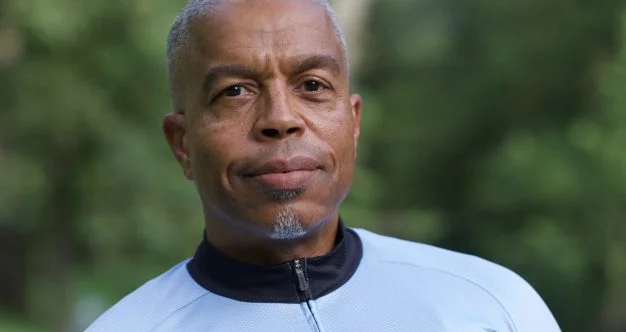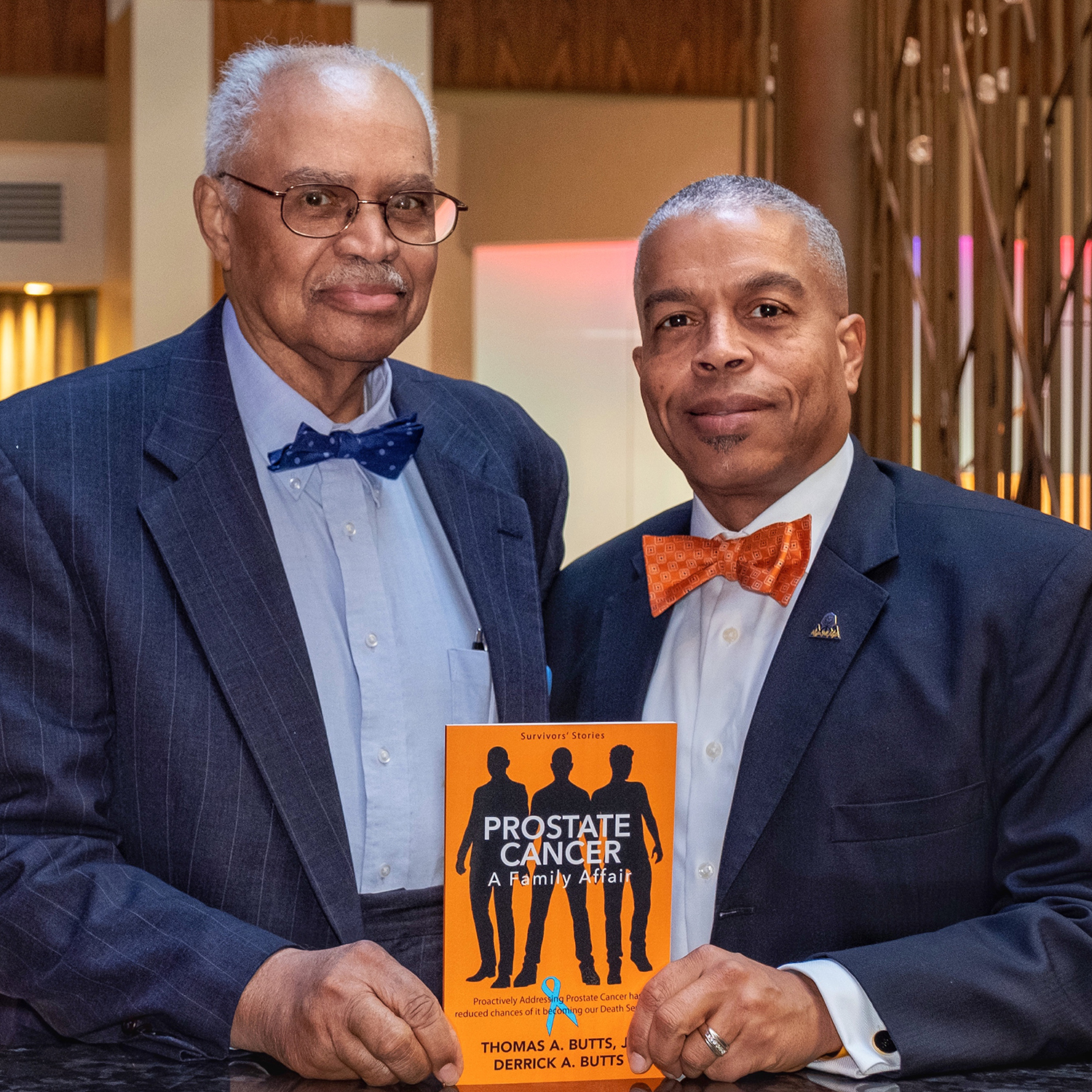Derrick Butts was 53 years old when he was diagnosed with prostate cancer. Following his successful treatment, he teamed up with his father and fellow prostate cancer survivor, Thomas, to write about their experiences battling the disease. Prostate Cancer: A Family Affair, published in 2019, told the tale of three generations of prostate cancer (Derrick’s grandfather, Thomas Butts, Sr. passed away from the disease in 1995) and two generations of survivors. Derrick and his father were intent on sharing how they increased their chances for longevity post-surgery and to have a quality-of-life after prostate cancer.
Derrick has continued his advocacy as co-founder of the Prostate Cancer Awareness Alliance-DMV, a Washington, D.C.-area nonprofit designed to reach local men with proactive prostate cancer education. He spoke to Black Health Matters about his prostate cancer journey and serving as a resource for other Black men dealing with the disease.
Black Health Matters: How were you first diagnosed with prostate cancer?
Derrick Butts: I have a family history; my father, grandfather, and uncle all had prostate cancer. Because of that, I had been tracking my prostate health since I was 38. In 2015, I noticed my PSA rose from 3.32 to 4.32. But I had no side effects—I was asymptomatic. Because I had been getting my PSA checked annually, the rise caused me to get a biopsy, but the first doctor didn’t give me a clear indication of anything. A second doctor didn’t give a clear answer either but sent me to a specialist at the National Institutes of Health (NIH). That was the first indication that I had prostate cancer. Getting diagnosed took seven months.
Black Health Matters: Why is it so hard for Black men to get diagnosed?
Derrick Butts: I run into men who aren’t frequently going to the doctor because they don’t have insurance or don’t feel the need to proactively check their PSA because they’re not experiencing any pain or symptoms. Those who do see a doctor are often told they don’t need a PSA because they’re not old enough—and these doctors say that without even knowing the person’s family history.
Black Health Matters: What led to the launch of your nonprofit?
Derrick Butts: I saw there was a real need here for education. We started the nonprofit to offer prostate cancer support, share services, discuss therapies/technologies for those in the DC Maryland-Virginia area, and share prostate cancer survivor stories. A lot of men, for instance, didn’t know they could go to different medical facilities in the area like Howard University Hospital, INOVA, George Washington University Hospital, or Johns Hopkins Medical Center. We then found that people outside the DMV were attending our virtual events to ask about services and cancer support where they live. So now we’re looking to bring our support model to other underserved areas with a high concentration of Black men with prostate cancer.
Black Health Matters: What advice do you give to men who are newly diagnosed?
Derrick Butts: I talk to 2-3 men a week who have been newly diagnosed—it’s usually because they saw me on a webinar. The first questions I ask are, what’s your PSA level, and do you have a family history? That information lets me know how or if they have thought about their prostate cancer journey. I also discuss treatment options and where they can go for a second opinion. If they’re married, I tell them to make sure they have an in-depth conversation with their wife, spouse, or partner. This experience will feel like a roller coaster, so it’s important to have a cheerleader to support you on this journey. No one should ever navigate a cancer journey alone.
Black Health Matters: What does this work mean to you as a survivor?
Derrick Butts: If you look at stats, 1 in 8 men will be diagnosed with prostate cancer. If you’re Black, it’s 1 in 5. When you start giving people numbers [in terms of the prevalence of prostate cancer in Black men, particularly those with a family history], it really hits home that it’s important to know their PSA numbers and get ahead of this disease. Every man is going to be diagnosed at a different stage, and our goal is help them to catch prostate cancer early. I hope to share my and other men’s stories to let them know there is life after prostate cancer.
Derrick A. Butts pictured with his father, Thomas A. Butts.
This article has been brought to you by Lilly.








